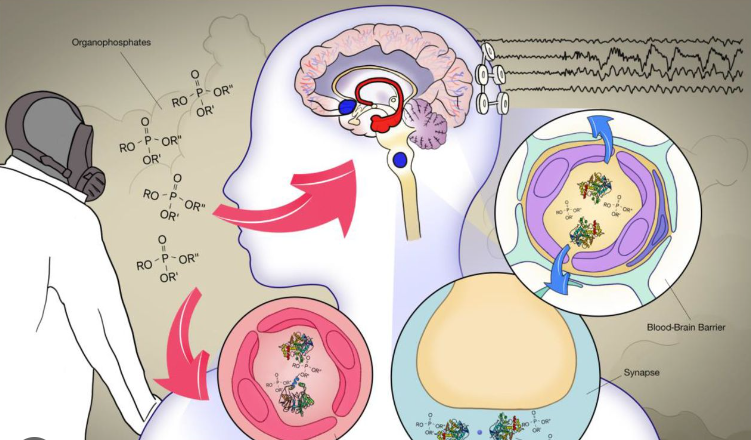Various sophisticated examinations revealed no evidence of brain damage or deterioration among U.S. diplomats who experience enigmatic health issues previously referred to as “Havana syndrome.”
Researchers stated on Monday that among U.S. diplomats and other government workers who experience unexplained health issues formerly called “Havana syndrome,” a battery of sophisticated testing revealed no evidence of brain damage or degeneration.
The symptoms, which included headaches, balance issues, and difficulty thinking and sleeping and were first reported in Cuba in 2016 and later by hundreds of American personnel in multiple locations, had no explanation, according to the nearly five-year study conducted by the National Institutes of Health.

No Brain Damage Found In “Havana Syndrome” Patients
However, it did go counter to some previous research raising the possibility of brain damage in those going through what the State Department now refers to as “anomalous health incidents.”
“These people are going through a very difficult time and have real symptoms,” said Dr. Leighton Chan, chief of rehabilitation medicine at the National Institute of Health, who also assisted in leading the study. “They can be very severe, incapacitating, and challenging to cure.”
Yet sophisticated MRI scans detected no significant differences in brain volume, structure or white matter—signs of injury or degeneration—when Havana syndrome patients were compared to healthy government workers with similar jobs, including some in the same embassy. Nor were there significant differences in cognitive and other tests, according to findings published in the Journal of the American Medical Association.

While that couldn’t rule out some transient injury when symptoms began, researchers said it’s good news that they couldn’t spot long-term markers on brain scans that are typical after trauma or stroke.
According to Louis French, a neuropsychologist at Walter Reed National Military Medical Center who treats patients with Havana syndrome and is co-author of the paper, this “should be some reassurance for patients.” “It enables us to concentrate on restoring people to their proper places in the here and now.”
About 28% of individuals with Havana syndrome were found to have persistent postural-perceptual dizziness (PPPD), a balance disorder. It is associated with extreme stress and inner-ear issues. It arises when specific brain networks appear unharmed but are unable to communicate effectively. The French referred to it as a “maladaptive response,” analogous to how people who have slouched to relieve back pain may experience post-pain postural issues.

Participants with Havana syndrome showed higher levels of despair, exhaustion, and symptoms of PTSD.
The results are the most recent in an investigation into a mystery that started when staff members at the American embassy in Cuba started going to the doctor for treatment of hearing loss and ringing in their ears after hearing unusual noises.
There were early worries that directed energy might have been employed by Russia or another nation to attack Americans. However, U.S. intelligence services reported last year that there was no indication of a foreign opponent being involved and that the majority of instances seemed to have various origins, such as environmental conditions or undetected illnesses.

A few sufferers have claimed that the government downplays their illnesses. Additionally, a scientist demanded more investigation in an editorial published in JAMA on Monday.
“One might suspect that nothing serious happened with these cases. This would be ill-advised,” wrote Dr. David Relman of Stanford University. In 2022, he was part of a government-appointed panel that couldn’t rule out that a pulsed form of energy could explain a subset of cases.

The NIH study, which began in 2018 and included more than 80 Havana syndrome patients, wasn’t designed to examine the likelihood of some weapon or other trigger for Havana syndrome symptoms. Chan said the findings don’t contradict the intelligence agencies’ conclusions.
If some “external phenomenon” was behind the symptoms, “it did not result in persistent or detectable pathophysiologic change,” he said.
The State Department said it was reviewing NIH’s findings but that its priority was ensuring affected employees and family members “are treated with respect and compassion and receive timely access to medical care and all benefits to which they are entitled.”

Also read: State Medicaid Offices Go After The Homes Of The Dead To Recoup Their Medical Expenses
images source: Google
Disclaimer: The opinions and suggestions expressed in this article are solely those of the individual analysts. These are not the opinions of HNN. For more, please consult with your doctor




































